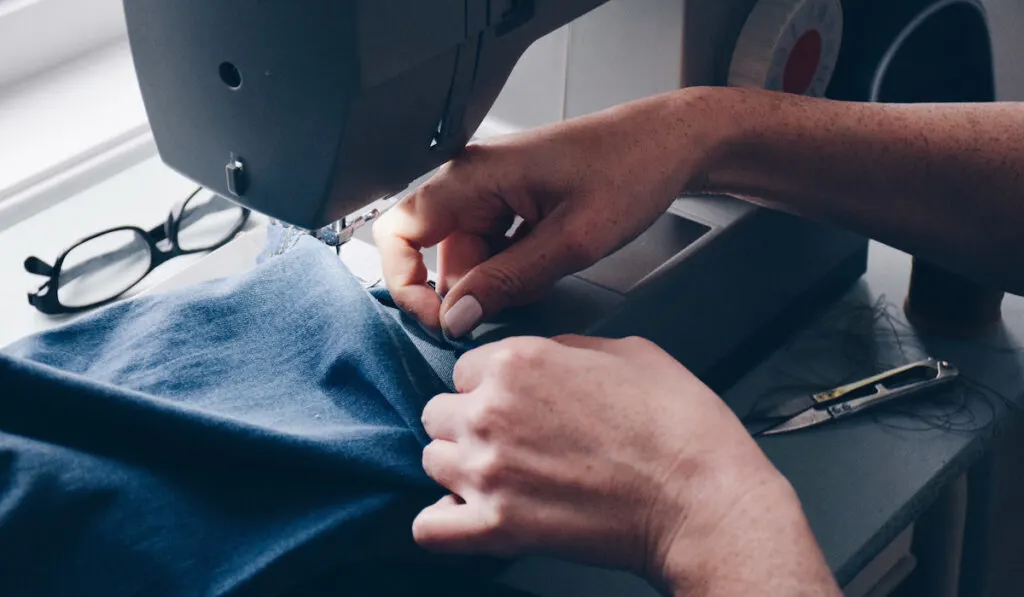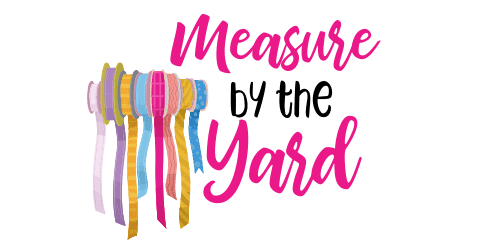There’s a whole lot you can sew with a machine. You can sew cotton, satin, polyester, lace, linen, chiffon, and many more. But now, you have a vinyl material on hand, and you’re wondering if your regular sewing machine will work for it.
So you ask yourself, can a regular sewing machine sew vinyl?
A regular sewing machine can sew vinyl but there are a few factors to consider. One of these factors is the thickness of the vinyl. If your vinyl material is very thick, you may have to sew with an industrial machine instead.

Your vinyl’s thickness is not all that matters when you try to sew on a regular machine. So, in the next few paragraphs, we shall discuss some other things you need to know about sewing vinyl.
Can a Regular Sewing Machine Sew Vinyl
There are various types of vinyl materials, and each one has its thickness. Now, if you will sew any of the types of vinyl, you have to ensure that it is not too thick for your machine to handle.
You should consider the thickness of the material when it is unfolded, and the thickness when it is folded while sewing.
If your machine can sew the vinyl while unfolded, but can’t sew it while folded, you should consider using an industrial machine instead.
When sewing vinyl, use larger stitch spacing. If you use smaller stitch spacing, you run the risk of perforating the material. The tiny stitches can collapse into each other to form a rip line, and that means your material is damaged. A stitch space of about 3 mm or more would do just fine.
Another thing to consider when sewing vinyl is the size of the needle. There is no restriction on the type you can use, but there might a restriction on the size. Since vinyl is generally thick, you should consider using needles of larger sizes on them.
Best Needles to Use With Vinyl
Now, we’ve established that you can use various types of needles on vinyl, but which ones are the best? Well, let’s discuss that.
Leather Needles
Leather needles have a triangle-shaped point, and the good thing is that this makes clean holes.
Leather needles have very strong shafts, and this gives them their heavy-duty property. You can use them freely on vinyl without the fear of breaking or bending.
When buying a leather needle for vinyl, you might want to choose either a size 100/16 or 90/14. Getting one of a bigger size might just leave you with seam holes that are too big.
Universal Needles
As the name reveals, universal needles work on many types of fabric, and vinyl is not an exemption. They are heavy-duty and will not easily break or bend when you use them on vinyl.
If you intend to use a universal needle on your vinyl, get either a 90/14 or 100/16. You can also get something higher if the material is extra thick. Do not go for a smaller one, or your needle will break or bend while you sew.
Do You Need Special Thread to Sew With Vinyl
When sewing vinyl, you cannot use just any thread. You need something that can withstand the thickness of the material as you sew, and lasts long.
So, if you intend to sew vinyl, you should get an industrial thread or a heavy-duty thread. These types are usually made from nylon or polyester.
You may consider getting the polyester type if you are working on an outdoor vinyl project. Generally, polyester is resistant to moisture and UV, so it won’t wear off or fade when placed outside. UV-treated brands of polyester are also available, and they offer more resistance to UV.
Nylon, on the other hand, works well for indoor décor. It is more flexible than polyester yet very resistant. Avoid nylon threads if you are working on an outdoor project. Nylon is not UV-resistant, so it’ll become damaged very fast.
One thing you should do before you start sewing is to determine the best thread tension to work with. You may sew on a piece of vinyl scrap first to ascertain said tension.
Best Presser Feet to Use With Vinyl
Your presser foot might be problematic if you are not using one that suits vinyl. You should expect some dragging if what you have is not the best for vinyl. Of course, if you experience dragging, your sewing experience will not be pleasant.
To avoid this, you should try using one of the following types of presser foot:
Teflon-Coated Foot
Vinyl has a sticky surface, and this can cause it to adhere to your presser foot as you sew. But this will not happen with a Teflon-coated foot.
The coating serves as a barrier between the surface of the vinyl and the bottom of the presser foot. So, there’s no sticking and no dragging.
Walking Foot
The walking foot works by pulling vinyl as fast as the feed dog moves the vinyl.
Besides a walking foot and a Teflon-coated foot, you can also use a non-stick foot or a roller foot.
Types of Vinyl
All types of vinyl share the common property of being water-resistant. But you’ll find some differences in their texture and what they’re made from.
The following are some of the vinyl fabrics you’ll commonly find:
- PVC Fabric
- Oilcloth
- Artificial Leather
- Laminated Fabric
- Chalk Cloth
PVC Fabric
PVC is an abbreviation that means polyvinyl chloride. PVC Fabric is made by coating polyester with a PVC layer.
PVC fabrics with light coating are used for making clothes, while those with heavy coating are for industrial uses.
OilCloth
Oilcloths are made from cotton mesh with thick layers of PVC. This type of vinyl does not require serious maintenance, and it is usually used for crafts by kids. Of course, they come in bright colors and fun patterns, hence their popularity with kids.
Artificial Leather
This type of vinyl looks like animal hide, but it is relatively cheaper. Some come with cloth support while some don’t. Artificial leather is available in many textures, thickness, style, and pattern.
Laminated Fabric
When high-quality cotton is covered with a thin layer of polyurethane, you get laminated fabric. This vinyl is lightweight, thin, and quite flexible. It works well when you need a flexible, water-resistant fabric.
Chalk Cloth
Chalk cloth is so-called because you can write on it with chalk. It is quite similar to oilcloth, but thicker. It works well for interior décor, signs, and tags.
Sewing With Vinyl: 9 Project Ideas That Are Great With Vinyl
If you have some vinyl and do not know what to do with it, try out one of the following ideas.
- Business Card Holder
- First-Aid Vinyl Pouch
- Activity Bag
- Jewelry Organizer
- Pencil Pouch
- See-Through Tote
- Vinyl Wallet
- Vinyl Badge Holder
- Vinyl Phone Pouch
Final Thoughts
A regular sewing machine can sew vinyl, but you have to ensure that the vinyl is not too thick for it. then you should also use the right needle, thread, and presser foot. With all these in place, you’re good to go.
Resources
- https://www.marinevinylfabric.com/blogs/marine-vinyl-blog/76906819-3-easy-tips-to-sew-marine-vinyl
- https://sewingmachinetalk.com/sewing-vinyl-leather
- https://www.sailrite.com/Selecting-the-Right-Thread-Material
- https://www.sewingpartsonline.com/blog/how-to-sew-vinyl-faux-leather-oilcloth/
- http://haberdasheryfun.com/fabric/diy-top-5-vinyl-sewing-projects
- https://www.sewcanshe.com/blog/12-sewing-projects-to-make-with-vinyl-all-free
